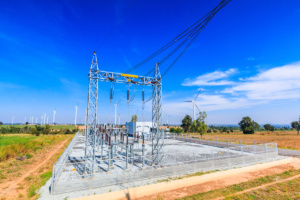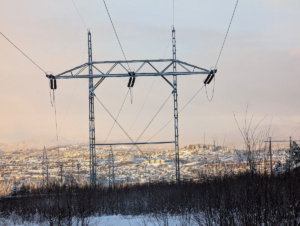This week I am spending in Houston, Texas, in a workshop open for the 23 signatories of the Mission Innovation initiative.
Mission innovation is an initiative announced during the COP21 in Paris and with the aim to double public R&D in clean energy solutions by 2021.
Mission Innovation has defined 7 challenges whereof CCUS is one of these. And for those of you not familiar with the term CCUS, it means Carbon dioxide Capture, Use and Storage.
Do not mess up the requirement to store
Although I interprete this somewhat differently Carbon dioxide Capture with Use and provided Storage. Why? Because without storage we cannot discuss this as a climate Technology.
CCUS is for climate change mitigation, and capture with subsequent release into the atmosphere by a certain delay is not isolating CO2 from the atmosphere. It may be good for many other reasons which are honourable by themselves but do not mess up the requirement to store and isolate from release into the atmosphere.
I am here on EERA mission
I am here on a mission from the European Commission, EERA and the ZEP ETIP to give advice and to define PRD’s – Priority Research Directions for this important topic.
It’s quite a baffling experience to be in Houston on such a mission- in a city where some areas are left devasted by the hurricane Harvey. Even though the scientific community is not willing to 100% underwrite the direct connection of stronger and more frequent hurricanes in this part of the world with climate change I think this is implicitly felt by everyone.
It is common knowledge that more energy into weather systems can cause stronger and more extreme weather. We see this now only in America but it’s felt in other regions as well, heavier rainfall and causing extreme conditions for our vulnerable infrastructure.

CCUS is for combating climate change only
CCUS is the only thoroughbred climate technology we have developed over the years. You would be out of your wits to take away 5-10% of efficiency and increase cost of electricity by 30-50% unless there was a very good reason for it. And the reason is climate change.
I mean – wind and solar you would develop and deploy irrespective of climate change just because of it’s affordability- we did not deploy hydro Power to combat climate change. But CCUS is for combating climate change only.
Europe has stepped up on climate leadership
Well- let’s put rhetoric’s to side and focus on the tasks we are confronted with; Which areas and topics are there within CCUS that the global community can benefit from in a common effort. This means concerted action among countries and parties like EU.
In the absence of clear leadership from the White House on climate, Europe has stepped up the effort and is ready to make a stronger commitment on climate.
This is where I think EERA and ZEP can make a difference. Let’s say that there are unknowns in the process of supercritical combustion with CO2 (I must admit I am not neutral to the topic selected). These are generic issues that the best labs and modelling people can work on and share results: this is pre-competitive knowledge. It may enable us with better power processes with almost the same efficiency as without CCS. Or a unified method for assessing storage capacity- based on various data. This could be of tremendous value for the future storage industry. There are good examples from the UK and the Nordic region (NORDICCS) for a unified method. I could go on to solvents, sorbents and membranes to mention some.

Bigger impact when we unite efforts
The issue is that united we can make a stronger impact than single labs/academic environments working alone. And we can work together on pre-competetive issues.
This is Joint Programming at it’s essence and I am sure that our Joint Programme on CCS will take on the challenges from Houston and by means of the European framework programmes for research, national funding and international funding streams progress on the important topics identified.
The CCUS Mission Innovation will have a focus on Technology Readiness Level (TRL)1-4, meaning that we are stretching it to lab scale testing and models- it could even be on a standalone component level and prototypes. This is well suited for EERA activities and to complement this the ETIP ZEP will be a vehicle to transfer this to higher TRL’s through the industrial stakeholders.
So Houston – we do have a problem and as for the space program we need Houston to fix it and fix it fast.
Let’s hope for constructive discussions here and a clear recommendation for what to pursue in the near future, in the common interest of all as a global effort.









Comments
No comments yet. Be the first to comment!